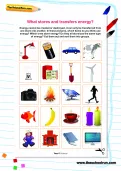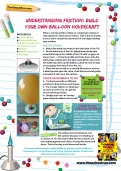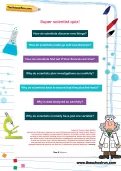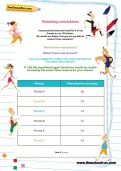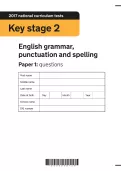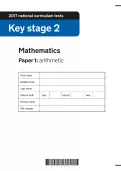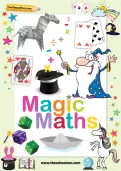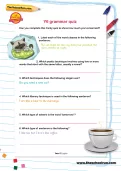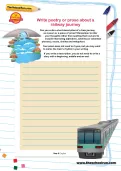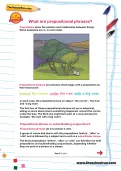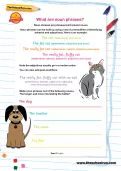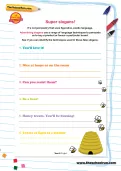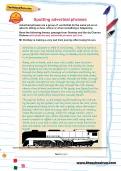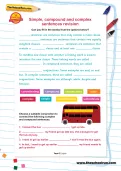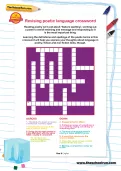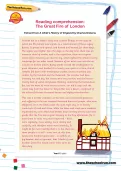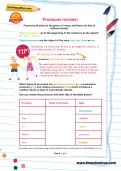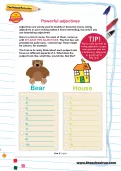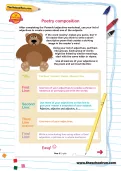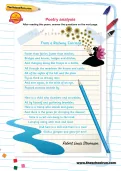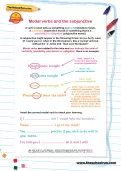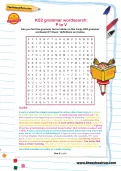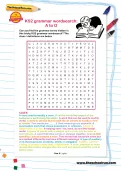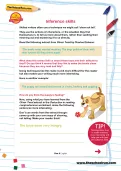Help your child prepare for the Year 6 English SATs, taken at the end of Key Stage 2, with some revision and at-home practice. These complete 2017 Y6 SATs past papers are the official past papers from the Department for Education, used in schools.
or
Register to add to your saved resources
A complete set of official 2017 KS2 SATs maths papers. The past papers, answers and marking scheme can be downloaded for free from TheSchoolRun to offer at-home practice for the Y6 tests.
or
Register to add to your saved resources
Are you ready to unleash your maths superpowers? Our number tricks will help you develop X-Ray vision, read minds, memorise hundreds of numbers and more. Add, subtract, multiply, divide and... abracadabra!
or
Register to add to your saved resources
Already a subscriber? to view this content.
Can you complete this tricky quiz to show how much you’ve learned?
or
Register to add to your saved resources
Already a subscriber? to view this content.
Can you write a short description of a train journey, as a poem or a piece of prose? Remember to infer your thoughts rather than spelling them out and to include interesting adjectives, adverbs (or adverbial phrases), nouns, similes and metaphors.
or
Register to add to your saved resources
Already a subscriber? to view this content.
Prepositions show the position and relationship between things. Prepositional phrases are phrases which begin with a preposition as their head word. Can you identify whether the prepositions before, after and until are functioning as prepositions or subordinating conjunctions in the following sentences?
or
Register to add to your saved resources
Already a subscriber? to view this content.
Noun phrases are phrases built around nouns. Make noun phrases out of the following nouns, the longer and more interesting the better!
or
Register to add to your saved resources
Already a subscriber? to view this content.
It’s not just poetry that uses figurative, poetic language. Advertising slogans use a range of language techniques to persuade us to buy a product or favour a particular brand. See if you can identify the techniques used in these fake slogans.
or
Register to add to your saved resources
Already a subscriber? to view this content.
Adverbial phrases are a group of words that do the same job as an adverb, telling us how, where or when something is happening. Read the following famous passage Dombey and Son by Charles Dickens and underline any adverbial phrases you find.
or
Register to add to your saved resources
Already a subscriber? to view this content.
Can you fill in the blanks from these options? Then choose a suitable conjunction to connect the following complex and compound sentences.
or
Register to add to your saved resources
Already a subscriber? to view this content.
Reading poetry isn’t just about ‘feature spotting’; working out a poem’s overall meaning and message and responding to it is the most important thing. Learning the definitions and spellings of the poetic terms in this crossword will help you express your thoughts about language in poetry, fiction and non-fiction texts, though.
or
Register to add to your saved resources
Already a subscriber? to view this content.
Read this extract from A Child’s History of England by Charles Dickens then answer the questions below.
or
Register to add to your saved resources
Already a subscriber? to view this content.
Pronouns all stand in the place of nouns, but there are lots of different kinds! Can you match the pronouns with their title in the table?
or
Register to add to your saved resources
Already a subscriber? to view this content.
Adjectives are words use to modify or describe nouns. Using adjectives in your writing makes it more interesting, but only if you use interesting adjectives! Here is a list of nouns. For each of them, come up with AT LEAST TEN ADJECTIVES. The first few will probably be quite easy – and boring! These might be colours, for example. The trick is to really think about each subject and focus on different aspects of it. What does the subject look like, smell like, sound like, feel like?
or
Register to add to your saved resources
Already a subscriber? to view this content.
If the word ‘poetry’ makes you panic, don’t! It’s easier than you think to write a short descriptive poem that creates a striking image in the reader’s mind. Why not have a go?
or
Register to add to your saved resources
Already a subscriber? to view this content.
After reading this Robert Louis Stevenson poem, answer the questions.
or
Register to add to your saved resources
Already a subscriber? to view this content.
Modal verbs are related to this idea and can indicate the level of certainty, possibility, permission or obligation. Insert the correct modal verb into these sentences.
or
Register to add to your saved resources
Already a subscriber? to view this content.
Can you find the grammar terms hidden in this tricky KS2 grammar wordsearch?
or
Register to add to your saved resources
Can you find the grammar terms hidden in this tricky KS2 grammar wordsearch?
or
Register to add to your saved resources
Skilled writers often use a technique we might call ‘show not tell’. They use the actions of characters, or the situation they find themselves in, to tell us more about them, rather than spelling their meaning out and explaining it to us directly. Can you use your inference skills on this passage?
or
Register to add to your saved resources
Already a subscriber? to view this content.
